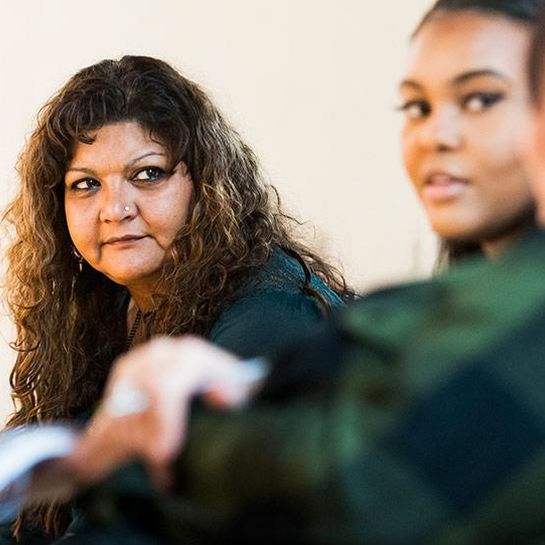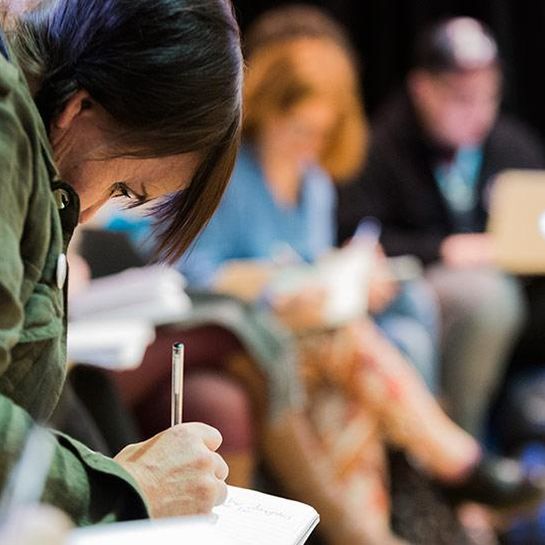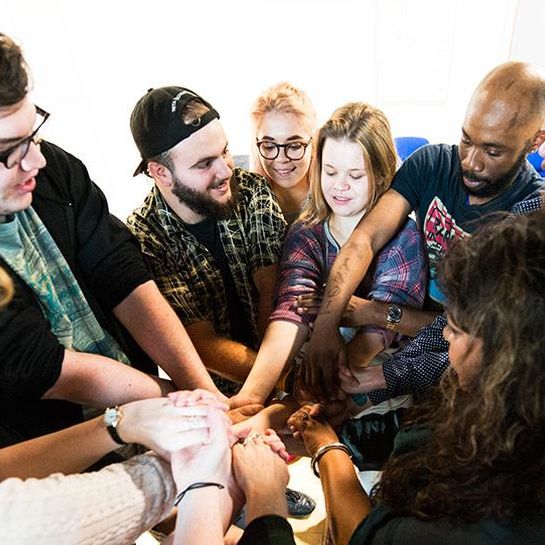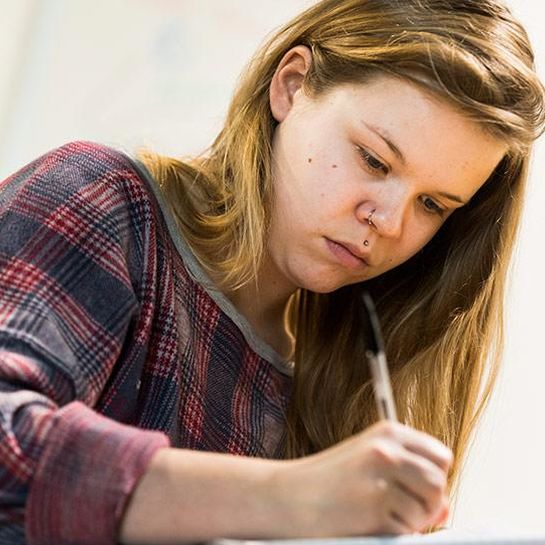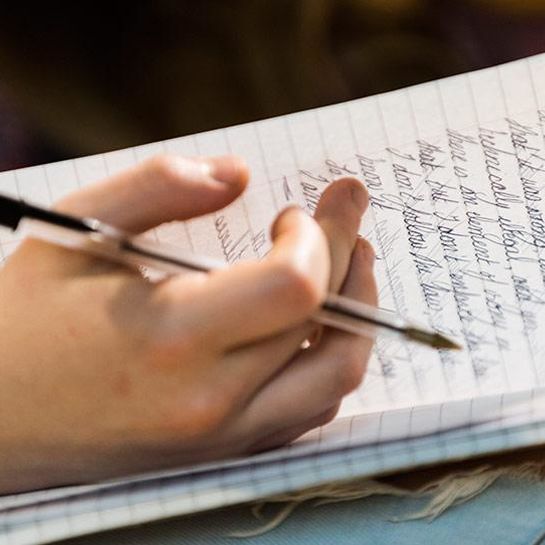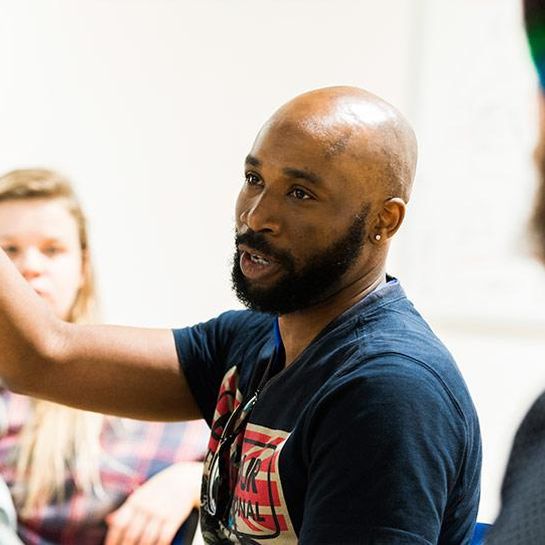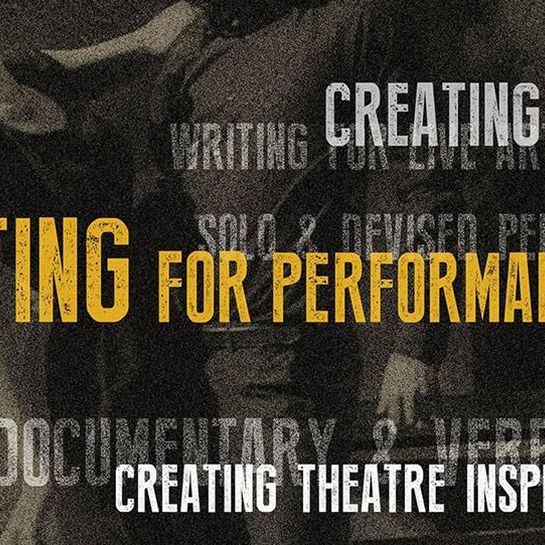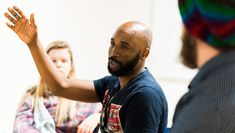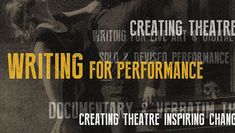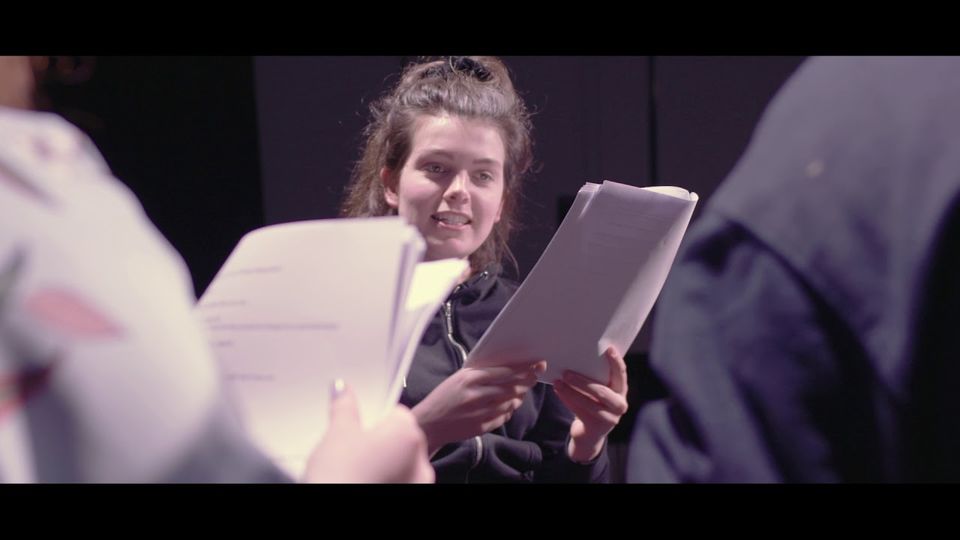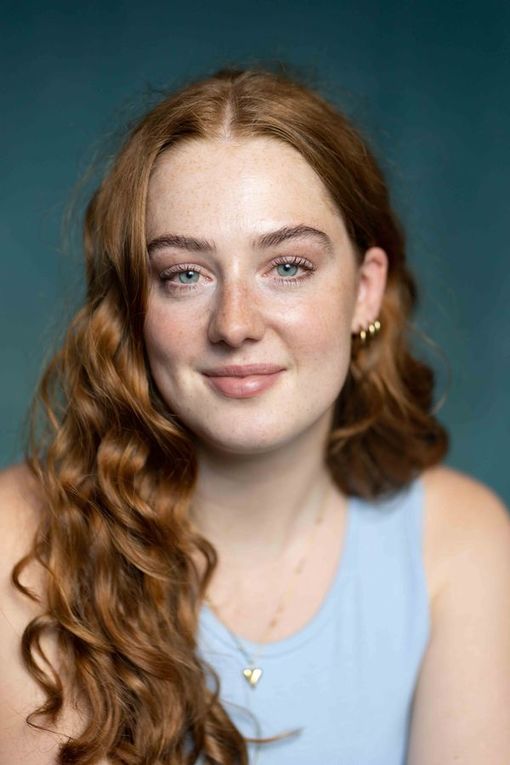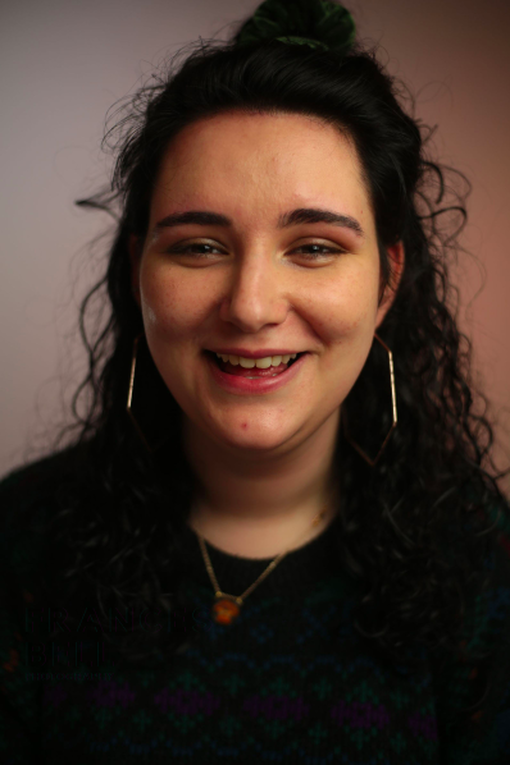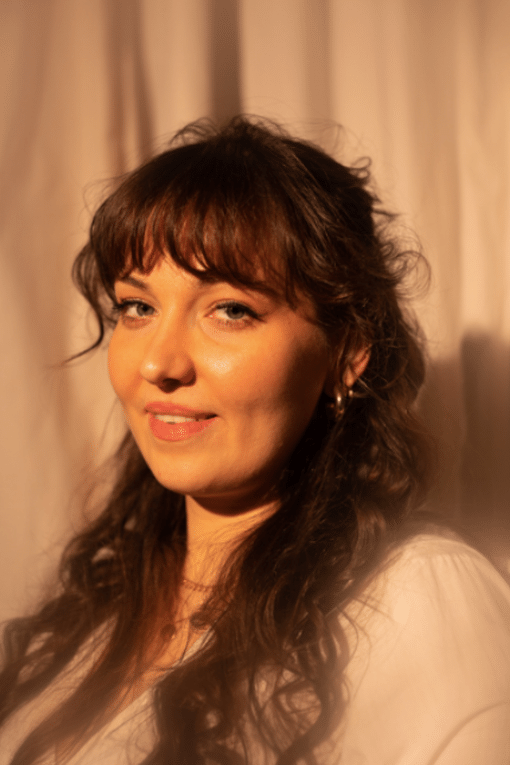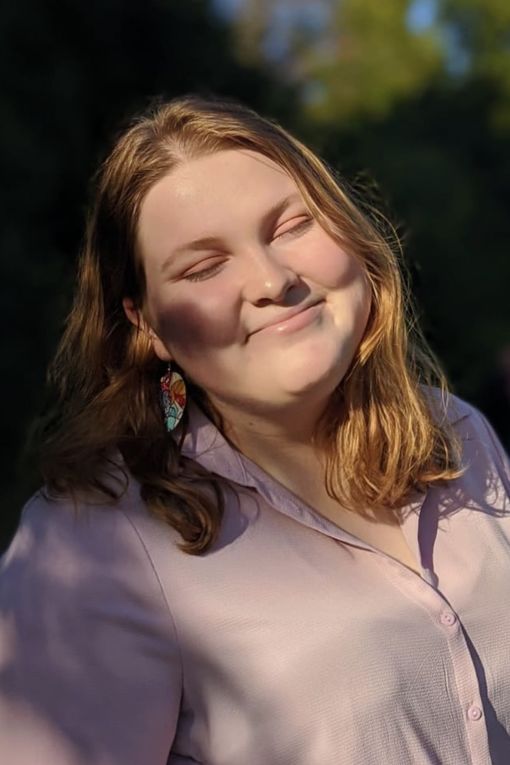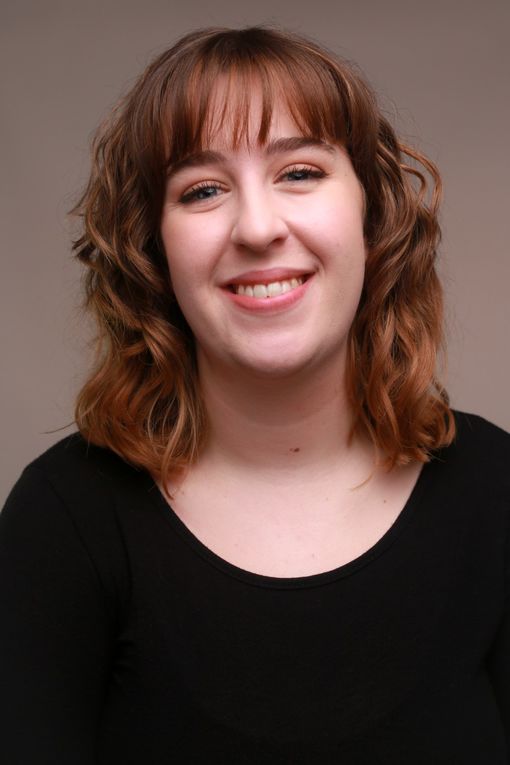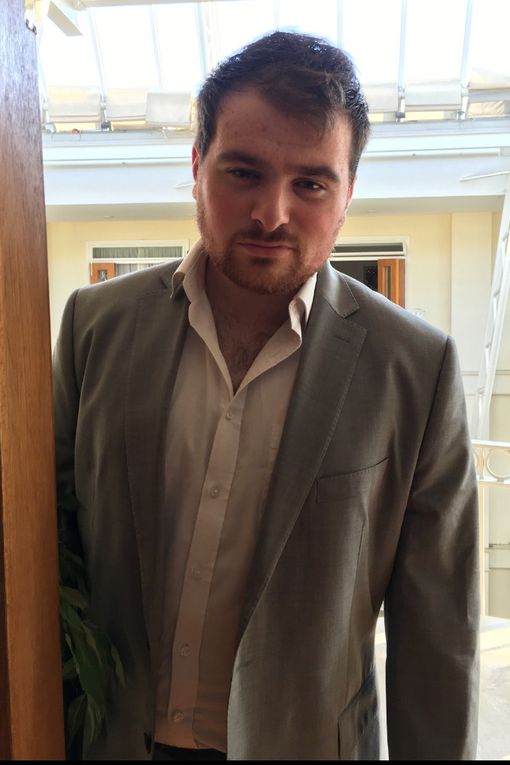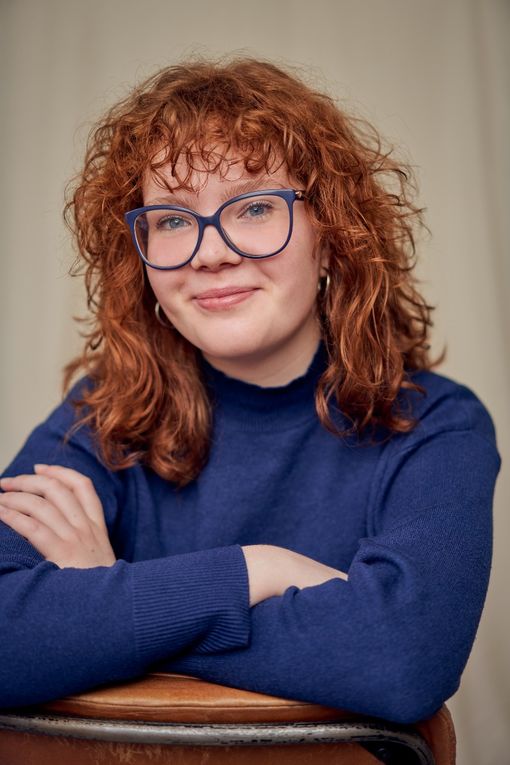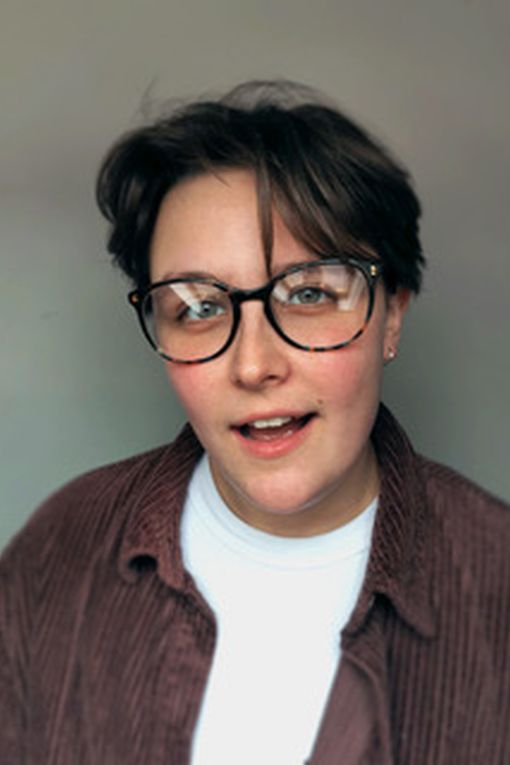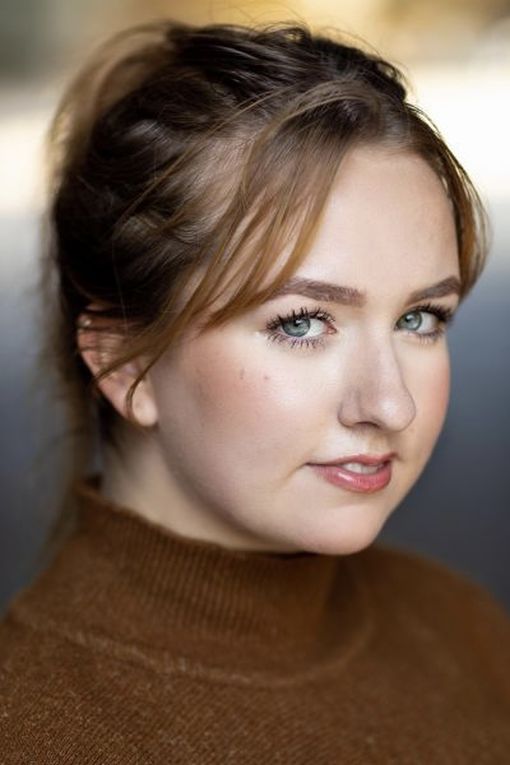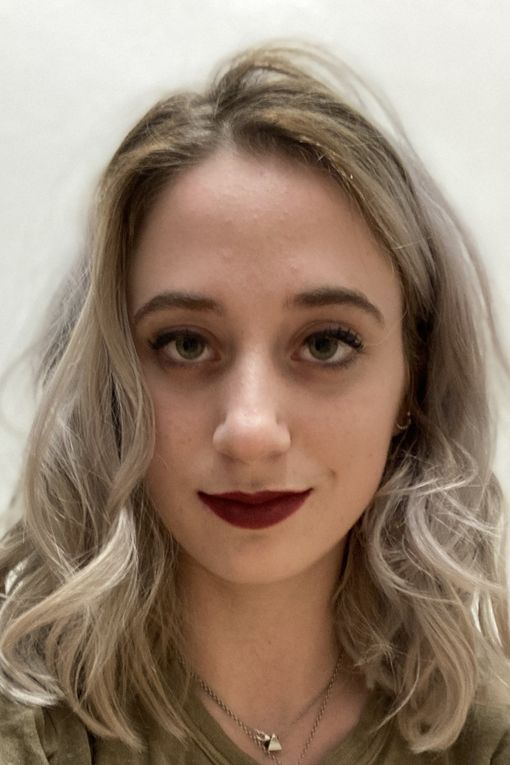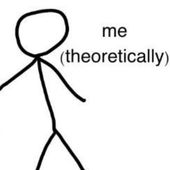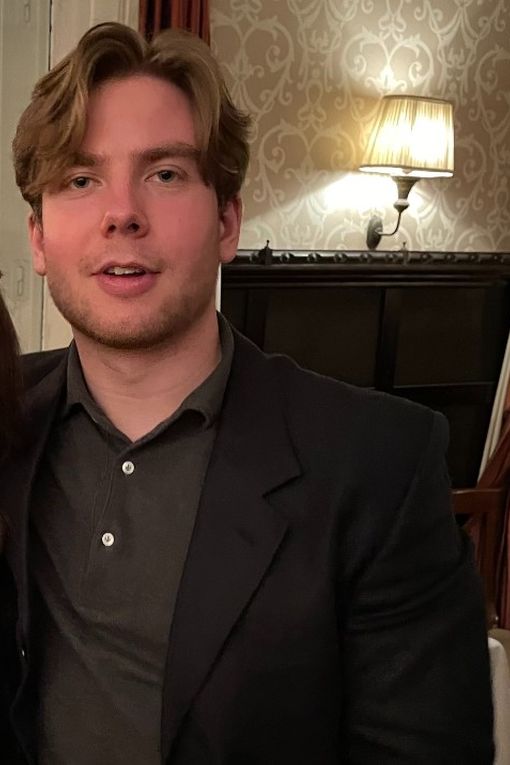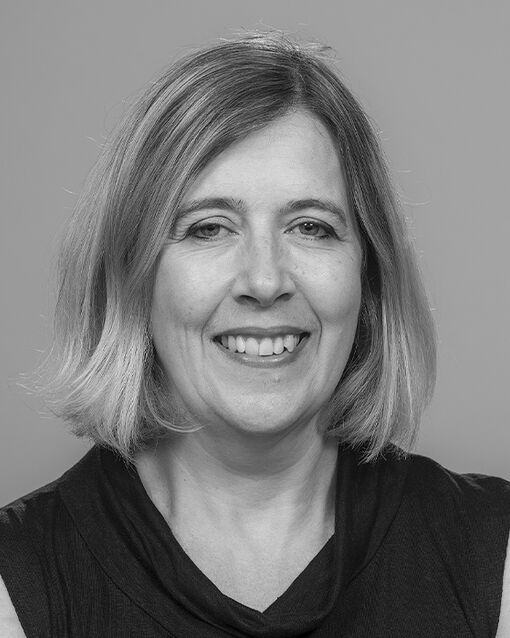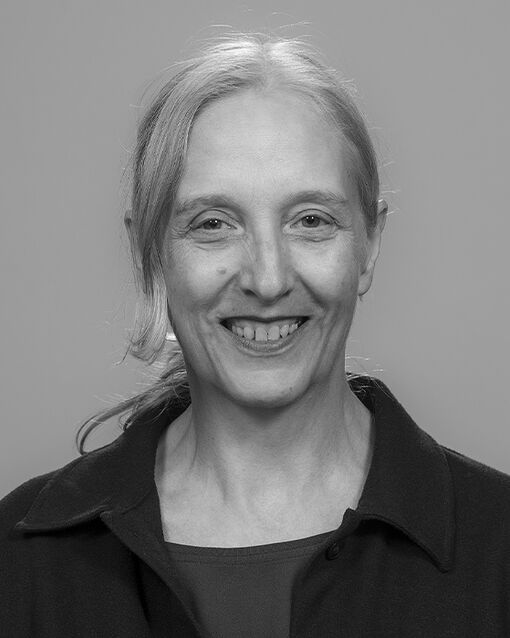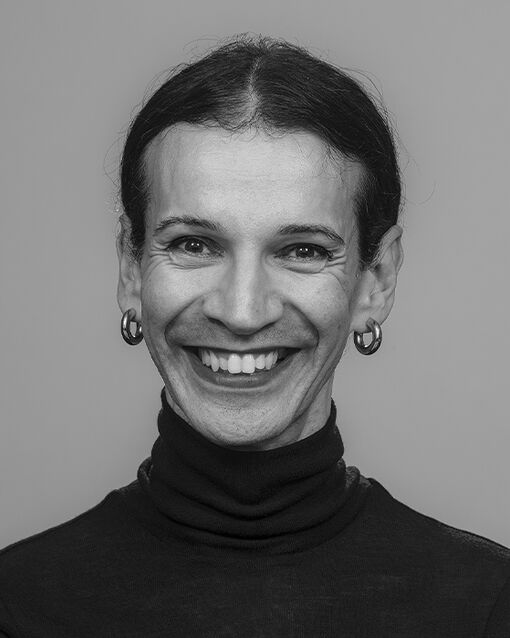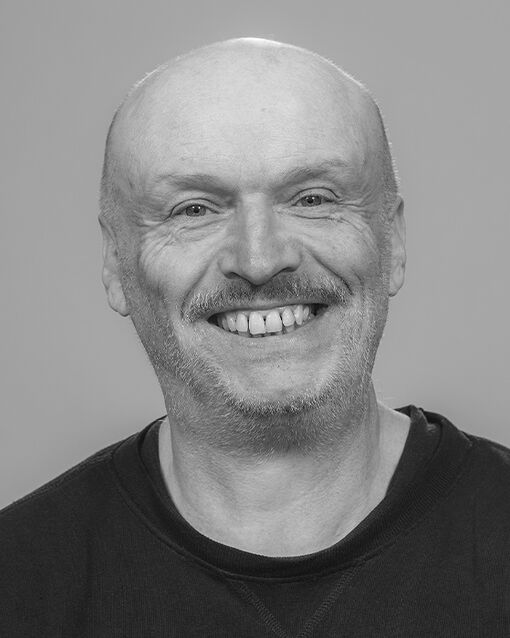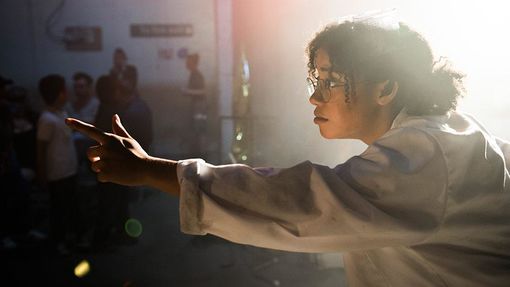Course information
UCAS code
Buttons
About this course
On the Writing for Performance course, you can:
- Develop skills for writing for performance practices
- Create new performance work and explore innovative forms of writing for solo performance, verbatim theatre and devised theatre
- Work with award-winning playwrights, arts practitioners and directors
- Position yourself as a writer within the performance process
- Explore a broad curriculum that is centred around socially engaged performance practices and the dramaturgical skills of writing
- Develop your writing skills in different community contexts in the UK and abroad
- Study alongside students on the BA Drama, Applied Theatre and Education and BA Experimental Arts and Performance programmes, offering a vibrant meshing of writing and live performance art at undergraduate level at Central.
You will work with a variety of high profile writers, arts practitioners and directors, encountering a diverse range of innovative performance practices that use writing for performance in different ways.
Exploration
Commencing with an exploration of classical dramaturgical approaches to writing and moving on to explore practices such as stand-up comedy, writing for communities and solo performance, you critically interrogate the role of the writer within the creative process. You will examine how this is historically constructed and how it changes in different eras and within different performance contexts.
Through an engagement with a series of practical writing projects, you will learn about different genres of writing for performance, exploring areas such as collaborative approaches to writing, political theatre, verbatim and testimonial theatre, and writing for live art and digital media.
Collaboration
A key component of the course is an emphasis on collaboration leading to engagement with many performance practices. You will work with key practitioners and writers within the field of theatre, drama and performance and with diverse participant groups and communities. You will have the opportunity to participate and create projects in collaboration with other students and explore the role of the writer within different community-specific creative projects.
Work Closely With Major Organisations
Central works closely with major organisations internationally and in the UK and has formed partnerships with professional new writing organisations and many innovative and cutting-edge practitioners and writers. Organisations include the Hampstead Theatre, National Theatre and the Young Vic, as well as community based organisations such as Little Fish Theatre Company, Core Arts and Mosaic LGBT+ Young Persons’ Trust.
Leverhulme Funding for Applied Theatre students
Find out more about how The Leverhulme Trust is providing major funding for the many exciting Applied Theatre student projects .
Second-year Entry
You can apply for second-year entry to this course if you have already undertaken first year study at another institution on a relevant course, taken a HND and HNC qualification or have relevant experience. Please contact admissions@cssd.ac.uk to find out more information.
Course video
Accordion
-
Course Detail
Throughout the three years of study, you will encounter a wide range of learning and teaching styles and engage with learning through practical workshops and theatre making, as well as lectures and seminars.
Year 1: Exploring concepts and ideas
- Explore concepts and ideas relating to writing for performance and applied theatre through a lecture programme and practical workshops.
- You are introduced to playwriting and the dramaturgical work of the writer, undertaking the practical study of writing for performance and the critical study of contemporary theatre.
- Many units include a strong practical element where you will work as writers and creators, specifically in term three where, currently, students create and participate in a major devised performance practice spread over the entire summer term.
Year 2: Workshops/masterclasses/study units
- You will engage with professional playwrights and theatre makers and produce a short extract of script to be presented at a rehearsed reading and a piece of solo performance.
- Further lecture programmes are based around writing for performance, playtexts and the role of drama as a force for change in contemporary society.
- You will experience the role of the writer in an applied theatre context through study units and a collaborative outreach project, working in a group creatively in London or beyond, including overseas.
Year 3: Focus on professional development
- You will pursue your own specialist interests further.
- Units include a dissertation or a playwriting research project, a writing project where you will be placed as a writer within a community context and a final student-led performance and writing-focused practical project.
- You will engage in a residency project, where you will be placed in a community, heritage or arts organisation where you research and develop a short play.
- The degree concludes with a specialist lecture series delivered by artists, academics and researchers, who are pioneers in the field of drama, theatre, performance and applied theatre.
Assessment
Assessment methods used include presentations, practice, drama and writing workshops, research projects, traditional essays, a dissertation and the creation of new writing, some of which will be viewed by professionals working in the industry.
-
Industry & Placements
Throughout the degree students have the opportunity to work in collaboration with industry professionals, from visiting lecturers, professional playwrights and workshops by leading practitioners and academics in the field of theatre and performance, to creating projects and performances with professional companies and artists.
The course nurtures relationships with local, national and international community and educational arts organisations such as: Oldham Theatre Workshop in Oldham (which uses theatre to contribute to the personal and social development of all people in Oldham) and internationally with organisations such as HEXlappies, as South African community arts.
Your experience with industry will vary from masterclasses with some of the country’s leading theatre practitioners and playwrights, to interaction with small scale, innovative companies.
Professional companies are invited to create new practice with you, either on-site at Central, on tour in various parts of the UK, or at off-site theatre venues and performance spaces.
For example, in previous years, students have worked with a number of different theatre companies at the Minack Theatre Cornwall, including Cartoon de Salvo and Twisting Yarn.Students have also participated in staff-led research projects and workshops led by artists from companies such as Graeae Theatre Company, ZU-UK and Little Fish Theatre.
All students participating in placements will be required to complete a Disclosure and Barring Service (DBS) check. This is a mandatory government safeguarding scheme for all those seeking to work in any capacity with minors or vulnerable adult
-
Recent Visiting Professionals
Leo Butler ( Redundant, Lucky Dog), Guleraana Mir (Misfits, Santi & Naz), Tanika Gupta MBE (The Waiting Room, Sugar Mummies), Jennifer Farmer (Compact Failure, Truth or Dare 2017), Tim Crouch (I, Malvolio, The Author, An Oak Tree, My Arm, Don’t Forget the Driver for BBC2), Hassan Mahamdallie (Quiet Rebels co-written with Julie McNamara, The Crows Plucked Your Sinews).
-
Meet the Writing for Performance Graduates from 2023
![Portrait of Bethany Calvert-Lee]()
Beth Calvert-Lee
Instagram: @bethcalvertlee, @intellectualramblings
Twitter: @bethcalvertlee
Beth is a playwright, poet and actress. Her writing often takes place in London and celebrates female voices. Her special interest is in creating work for solo-performance from auto-biographical writing. As a writer, Beth recognises the importance of interrogating her work. She wants to hear from everyone involved in the production of her performances; her background in acting means she particularly values the relationship actors have with writing.
Beth studied Musical Theatre at the Brit School where she learnt the value of ‘play’ in performance and joy in writing. She then graduated from the Arts Ed Acting Foundation course where she discovered the importance of dramaturgy in performance. Beth is a graduate of The Orange Tree Theatre Young Company and a member of the National Youth theatre. She is proud of having a strong network of creatives across the country.
Beth’s most recent play The Flaw is Yours investigates the vibrant lives of two young women living in a London council block that burns down. Going forward she plans to develop the piece into a full-length play. Beth’s piece The Intellectual Ramblings of a Mad Woman (who isn’t mad) will be shown this August at The Hope Theatre as part of the Camden Fringe.
![Portrait of Fannie Cole]()
Fannie Cole
Instagram: @fannie__marion
Website: fanniemarion.carrd.coFannie is an autistic playwright, performer and dramaturg. She likes writing funny plays about unfunny situations. Fannie is interested in work that centres on feminism, women’s history, how generational trauma affects women’s mental health. Recently, Fannie has had her work showcased in new writing nights in many theatres, including The Cockpit Theatre and with National Youth Theatre. She is also currently participating in Soho Writers Lab (receiving the Matilda Ibini Bursary) writing a satirical one woman show about sexism in classic literature. During her writer’s residency at The National Archives, she wrote a play following the real lives of arsonist, pyromaniac, lesbian suffragettes. She trained in acting at Rose Bruford College.
Having lived experience of mental health institutions, she wishes to create theatre that questions human behaviour and normalises insanity. Within her work, she wishes to challenge the relationship between the audience, the actor and the playwright and explores how these boundaries affect us. She works for the Disabled Artist Network Community and Changeling Children Theatre to increase accessibility and representation of disabled and mentally ill artists in the theatre industry. She has worked as an access consultant on various projects and knows three languages, including British Sign Language.
![Portrait of Audrey CsNagy]()
Audrey CsNagy
Instagram: @ch.eekie
Twitter: @feralbabey
Audrey CsNagy is a Hungarian writer originally trained as a classical dramaturg. She enjoys playing with audience expectation, poking holes in the fourth wall, and specialises in writing in verse. During her course she wrote the play MATER NOSTER, a one-woman show about a woman who grew up in a cult. She completed her placement at the Young Vic Theatre’s Taking Part Department and has facilitated an outreach project in Johannesburg, South Africa in co-production with the Market Theatre’s youth company as well as the Lefika La Phodiso art counselling organisation. Prior to her studies she was the dramaturg of the show Orgia with the company R-Konvoj, in Budapest, which had a run of three years.
Audrey is especially excited about playing with language and exploring the boundaries of it. She speaks several languages in varying levels of fluency and is always looking for new challenges.
![Portrait of Bethany Ellery]()
Beth Ellery
Instagram: @beth.ellery
Twitter: @bethellery_
Beth is a Cornish writer who aims to demonstrate the transformative potential of comedy. Whether it’s through satirical sketches, witty observations, or clever wordplay, Beth seeks to show that comedy can engage, educate, and inspire, leading to shifts in perspective and behaviour. Having had experience working in the arts community in Cornwall, London and more recently South Africa, Beth looks for the essence of the mundane and relatable. She recognises that even the simplest situations can be a source of comedic material. By adding these mundane elements to her creative twists, she crafts work that sometimes appears absurd or random.
She is currently writing short films with friends and collaborators, furthering and enriching her writing experience as she continues to work on projects for TV.
![Portrait of Claudia Fielding]()
Claudia Fielding
Website: claudiafielding.com
Instagram: @claudfandango
Claudia is a keen writer of dark comedy and tragicomedy, from monologues and sketches to full length plays. Her writing includes themes of the hypothetical, dystopia, politics, and forms of crisis ,and finding the funny in all that. Her plays are mainly set in London, with which she has a love/hate relationship. Her first play Tea Leaves debuted at The Courtyard in 2022 and was shortlisted for Masterclass’ Pitch Your Play Competition, as well as being in the top 20% of entrants for the Verity Bargate award out of 1300 applicants. Tea Leaves was shortlisted in the top 30 out of 250 applicants in the Breakthrough: Writers in Residence with Traverse Theatre. Her work has also been seen at The Arcola and The Hackney Den. She was commissioned by Theatre of Debate to write a thirty-minute play for young people about vaccine hesitancy. She recently completed her second full length play, titled Film: Don’t Recycle.
![Portrait of Laeth Quellin]()
Laeth Quellin
Instagram: @laethquellin
Laeth Quellin is a Manx writer and performer fascinated by folklore, dreams and anthropology. In 2020 Laeth received the Norman Sayle Award for writing and the Harbour Lights Award for his poem The Sea Swan. He has been published under The Isle of Man Arts Council and Pentameters Theatre. In 2022 Laeth completed a writing residency at Oldham Theatre Workshop and still occasionally works alongside their writer’s group that allows new, northern writers to develop their work. Laeth is currently part of the Pentameters Rep Company in Hampstead where he is involved in the theatre as a dramaturg and performer. In between developing his upcoming plays and performances, Laeth is also involved in a number of other projects taking place over the summer and attends Monroe House as an assistant writer and poet.
![Portrait of Anna Rastelli]()
Anna Rastelli
Twitter: @annarastelli8
Anna is a Queer and neurodivergent writer, director, dramaturg, and composer, and is particularly interested in projects that centre identity and accessibility. She is currently adapting a seminal novel from the lesbian literary canon into a musical and developing several monologues into full-length plays. In 2023, an extract of Anna’s new play PIZZAIOLA PARTY was performed at Theatre503’s Rapid Write Response night. She performed her spoken-word stand-up piece In Distress in the 2022 Write Here Write Now evening at the Cavendish Arms, and again at Early Dawn, a new writing night with Cracking Slate at the Golden Goose Theatre. Anna assistant directed an adaptation of Electra, and co-founded and programmed SU Fest, both at RCSSD. She also directed a rehearsed reading of Tea Leaves, a new play by Claudia Fielding, at the Courtyard Theatre.
![Portrait of Nell Rayner]()
Nell Rayner
Instagram: @nell.rayner, @strangers__play__
Twitter: @nell_rayner
Nell Rayner is a queer writer and theatre maker based in London. She enjoys experimenting with different styles and themes, but mainly focuses on creating politically-charged theatre, as well as using spoken word in her work. Nell has performed her own work as part of scratch nights (Salt Circle Productions, 2022), and has had her work performed by others in new writing nights and festivals (Bomb Factory, 2023; Act II Festival, 2023). Recently, Nell has worked as the Assistant Director on the new comedy play How to Kill Foxes by Rex Fisher at The Drayton Arms Theatre. She is currently self-producing her debut play Strangers, which will run at The Lion and Unicorn Theatre at the end of June. Nell was a writer in residence at Jacksons Lane last year, and has experience facilitating theatre workshops for young people in and around London. She will also be heading up to the Edinburgh Fringe this year as part of the EdFringe Review team.
![Portrait of Summer Rowley-Kirby]()
Summer Rowley-Kirby
Instagram: @summer_rk
Twitter: @SumRowKirb
Summer Rowley-Kirby is a queer writer and creative based in London and Essex who specialises in spoken word. Summer has been a part of the industry from a young age, performing with The Pauline Quirk Academy in London’s West End, where she trained for five years. Summer began writing at sixteen when she performed a range of spoken word pieces with Old Trunk Theatre Company at Chalkwell’s Metal, whilst continuing her studies in the performing arts. Whilst at Central, Summer has explored her writing style by focusing her plays on themes of grief, loss and dystopian worlds. Seeking to destroy taboos, Summer’s most recent work includes Here Lie the Bodies, a spoken word piece on her experience with grief after losing her parents, and her play BIMBO. It follows the story of a young girl who is finding her way in London whilst fighting the stereotypes of being an ‘Essex girl’.
![Portrait of Xanthe Summerfield]()
Xanthe Summerfield
Instagram: @xansummerfield
YouTube: www.youtube.com/@bigwords1000
Xanthe is a Zimbabwean-born, London-raised writer, actor, presenter and comedian. In 2018, she co-wrote, directed and played the leading role in a show at the Edinburgh Fringe Festival. Xanthe has written a variety of pieces over the last three years, from psychological thrillers to satirical skits, reflecting her skill and enthusiasm for dark humour. Xanthe is interested in writing and performing (including her own work) for stage, screen and radio. She has a YouTube channel, making witty explanatory videos on a variety of topics. She has contributed to a short film commissioned by the Tate Modern, and another for the International Film and Television School of Paris. She recently completed a residency at Surgeons’ Hall Museums in Edinburgh and is working on a comic piece on early medicine. She frequently works as a pundit, commenting on issues relating to Gen Z on both Times Radio and Monocle Radio.
![Black stick figure on a white background with the words (me theoretically) next to it]()
Indra Țincoca
Instagram: @_prophet60091
Indra’s writing is largely concerned with exploring unconventional practises of writing. You will often find fleeting and fragmented words and phrases, written largely in ekphrasis, in both Romanian and English. Her writing does not pertain to a specific form and aims to dissolve conventions surrounding prose, poetry and playwriting. Ce mundro o miro is a play written at iniva (Institute of International Visual Arts) where she undertook her writing-in-residence. She will start her MA in Writing at the Royal College of Art in September.
![Portrait of Conall Wilson]()
Conall Wilson
Instagram: @wconall
Conall is a London-Irish playwright, writer and filmmaker. He has an avid commitment to writing unconventional theatre. Over the past three years his interest for in-yer face theatre has grown; Sarah Kane & David Ireland are some of his favourite writers. Conall’s writing explore sthemes of mental health, violence, psychology and society. His most recent play Identity explores the history of The Troubles and the future of Northern Ireland in the 21st Century. Conall worked in residence at The Museum of Home as an Assistant Producer where he wrote Provoke, a short play that portrays the mental and psychological damage experienced in the life of a hoarder. During his studies at Central, Conall showcased two of his short plays, Sell your Sole and A Bad Day, and will debut his short play Provoke at the Etcetera Theatre in June.
-
Entry Requirements and Admissions
Minimum Entry Requirements
Our standard academic entry requirements range between 120 and 96 UCAS tariff points. As part of meeting these tariff points, we consider a range of qualifications including A Levels, BTECs, T Levels and many more. You can see how many tariff points your qualifications would gain on the UCAS Tariff Calculator. International qualifications and others not covered within the UCAS tariff can also be accepted. Please email us if you need further clarification.
Please note that we may make lower offers (including unconditional) to exceptional candidates and those who have alternative or prior experience to offer. All candidates are invited to interview, which is a key factor in determining who is accepted on to the course.
Admissions
For details of admission with academic credit see Undergraduate Applications.
Application Details
We look for these qualities in applicants:
- an interest in theatre and performance in different social and cultural settings (e.g. community theatre and theatre in prisons)
- good academic abilities in reading, analysis and writing
- an enquiring mind
- a collaborative, supportive approach to practical work
- practical drama skills (e.g. in performance)
- the ability to reflect constructively
- a commitment to equality of opportunity in society
- leadership skills
- creativity, flexibility, focus and professional conduct.
We particularly encourage applications from groups currently under-represented in higher education, such as students with disabilities and members of Black, Asian and Minority Ethnic groups. Find out more information on Central’s commitment to equality and diversity.
Interviews
Find out more about the interview process for this course.
International Interviews
Each year Central hosts a number of interviews outside of the UK, with a team of tutors from Central travelling to meet applicants. The international interviews are designed to replicate the London-based interview experience in every aspect (other than a tour of our site!). See our Event Finder for listings of upcoming interview locations and dates.
International Students
Visit the International Students section to view details of English language requirements for Central’s courses.
-
Tuition Fees, Bursaries and Scholarships
Tuition Fees for 2024 Entry
UK (Home) students: £9,250 per year*
Overseas students: £25,200 per yearPlease note that there may be additional costs that you need to incur as part of the training for the course.
Full information is available on the Tuition Fees and Additional Costs page.
Bursaries and Scholarships
Central offers a range of bursaries and scholarships. If you are holding an offer for a place on a course then you will be invited to apply for a bursary or scholarship.
UK-based undergraduate students who are applying for a student maintenance loan and have a household income under £35,000 will automatically be awarded our Access to Central Bursary.
*If you are a UK student but already hold a qualification at the equivalent or higher level to the one that you are applying for, then you may be classed as an ELQ student and be required to pay the same fee as an overseas student.
Student Feedback
“The visiting lecturers were very helpful for us – we met artists who are creating work in applied theatre and learnt about what we could do after we graduate. We were in a small group during the first year learning the theory and techniques of writing. In the second year we started to do more creative writing, developing our style and discovering what kind of writing we could bring to the applied theatre world.”
Azania Hammond-Dallas
Graduated BA DATE: Writing for Performance in 2018
Staff On The Course
UniStats Widget
You may also be interested in
On the Drama, Applied Theatre and Education (DATE) course, you can:
Perform in, direct and devise theatre, explore performance that takes place outside traditional theatre environments. Make theatre to change lives and inspire change in communities. Build industry contacts worldwide through placements and outreach projects. Develop skills in areas such as facilitating, devising, directing, performing, playwriting and filmmaking.

